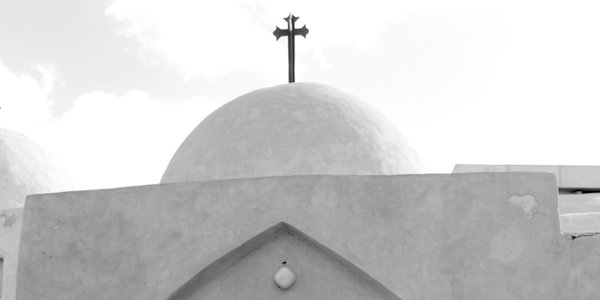WHEN Algeria gained its independence from France in 1962, Articles 29 and 36 of the Algerian Constitution allowed freedom of religion and missionary work. As a result more Algerians came to know Christ. This encouraged others in their faith in Jesus and to share it with their family and friends. Some went on to have important positions in society, including in the government, but there was a price to pay.
Christians in Algeria are still allowed to practise their faith, but it isn’t made easy for them: they are facing what is known as ‘squeeze persecution’. Many Algerian Christians are converts from Islam. As in so many Muslim countries, for Christians harassment and discrimination are part of daily life. Their families and communities attempt to draw them back into Islam and force them to live by Muslim cultural practices. Christians face verbal abuse and can lose their jobs because of their faith. More seriously, the government of Algeria tries to pressurise them into renouncing their faith in Christ, with the result that in the last year Algeria has risen four places in the Open Doors World Watch List to be recognised as the fifteenth most difficult country in the world to be a Christian.
And still the Algerian government increases the pressure. There are now laws which restrict non-Muslim worship. Anything which might ‘shake the faith of a Muslim’ or which could be seen as a ‘means of seduction intended to convert a Muslim to another religion’ is banned. Such vague legal definitions mean that Christians can never be sure if they are breaking the law; one word out of place and they could be subject to prosecution. Blasphemy laws, similar to those in most other Muslim nations, are in force and restrict freedom of speech and opportunities to evangelise. Even when not enforced, the existence of such laws has a stifling effect. Such is the pressure that many Algerian Christians keep their faith secret.
In 2006 the Algerian government passed Ordinance 06‐03. This law governs worship by non-Muslims and stipulates that it may be conducted only in a building approved for that purpose by the National Commission for Non-Muslim Religious Groups (NCNMRG). Government requirements for zoning, health and safety, and purpose of use have to be satisfied before a building can be approved for non-Muslim worship.
In 2017, Algerian government officials began visiting Protestant churches allegedly to check compliance with building safety regulations. However, the authorities were also checking whether the churches had permits to operate as places of worship. Since not a single permit has been granted by the NCNMRG since 2006 for use of a building for non-Muslim worship, most churches failed to comply.
After these visits Protestant churches began to be forcibly closed by the government, with more than 40 being locked in the last six years. These church closures appear to be part of a larger scheme to interfere with and ultimately drive out all non-Muslim religious groups. In Algeria the right to religious freedom, which includes the right to worship in community with others, appears in reality to mean the right to be a Muslim.
Instead of outright persecution the Algerian government continues gradually to impose ever more severe restrictions on non-Muslims to squeeze them out of existence; this is especially true for Protestants. The Covid-19 pandemic made the reality of the squeeze apparent with churches facing stricter covid restrictions than mosques. After ordering all houses of worship to close during the beginning of the pandemic, the government gradually reopened mosques and even Catholic churches, but Protestant churches had to remain resolutely closed to worshippers. Some Catholic churches don’t seem to require government oversight. This government tactic has the potential for creating division within the Algerian Church and can cause unnecessary conflict.
Of concern is the recent effort on behalf of the government to compile information about Christian and atheist teachers in Tizi Ouzou province and share it with the national intelligence agency. The imposition of these laws and government actions seems to be intended to generate an atmosphere of fear amongst Algeria’s Christians.
Yet in the face of increasing persecution the Algerian church thrives. The very government squeeze they are facing may yet prove counter-productive. There are reports that Christianity has grown in Algeria in the past decade. If true, this is a matter for praise.
Todd Nettleton of Voice of the Martyrs, which serves persecuted Christians around the world, reports, ‘Muslims are watching what is happening [to Algerian Christians]. I have talked to Algerian Christians who say [that] when their church was closed down, Muslim neighbours reached out and said, “Hey, we’re sorry this happened to you. We know you guys are good people; they shouldn’t have done this”.’
Nettleton says that as they watch events unfold, ‘Muslims grow curious and ask themselves, “Why does our government see the churches as such a threat? I wonder what those Christians believe that is so dangerous for the government.” Maybe they go on to Google or turn on a satellite TV channel and hear the Gospel message.’
North Africa was once the beating heart of Christianity and we still owe it a great deal. Augustine, probably the greatest of all the Church Fathers, was born in what is now Algeria. It is generally held that Western theology is to a considerable extent a footnote to Augustine. The Church Fathers Cyprian and Tertullian were also of North African descent. Tertullian’s most famous line is appropriate when we consider today’s persecuted church, ‘The blood of the martyrs is the seed of the church.’
This article appears in A Grain of Sand and is republished by kind permission.

